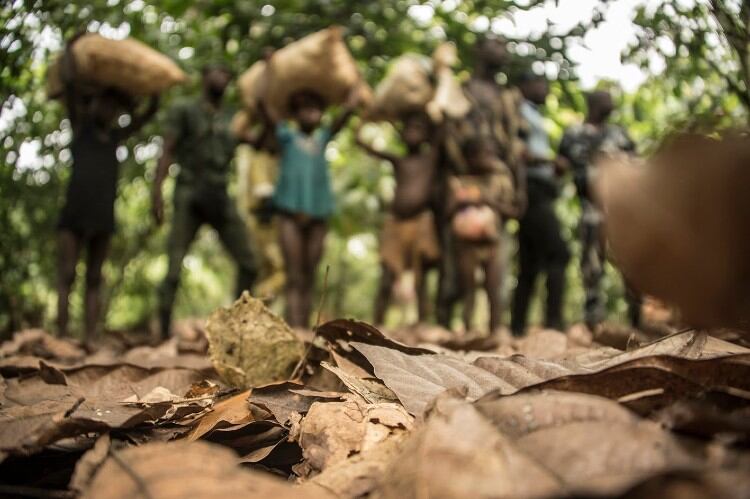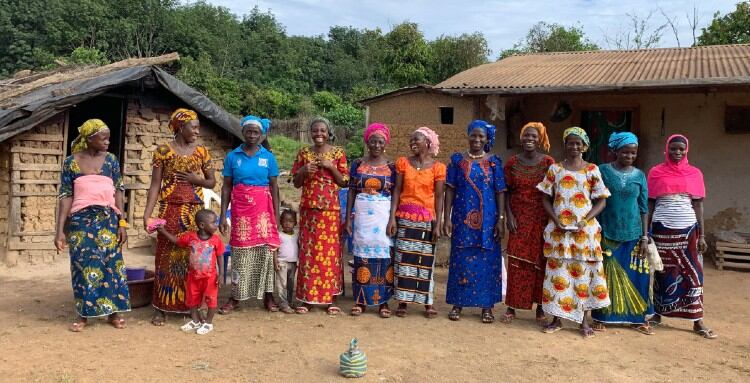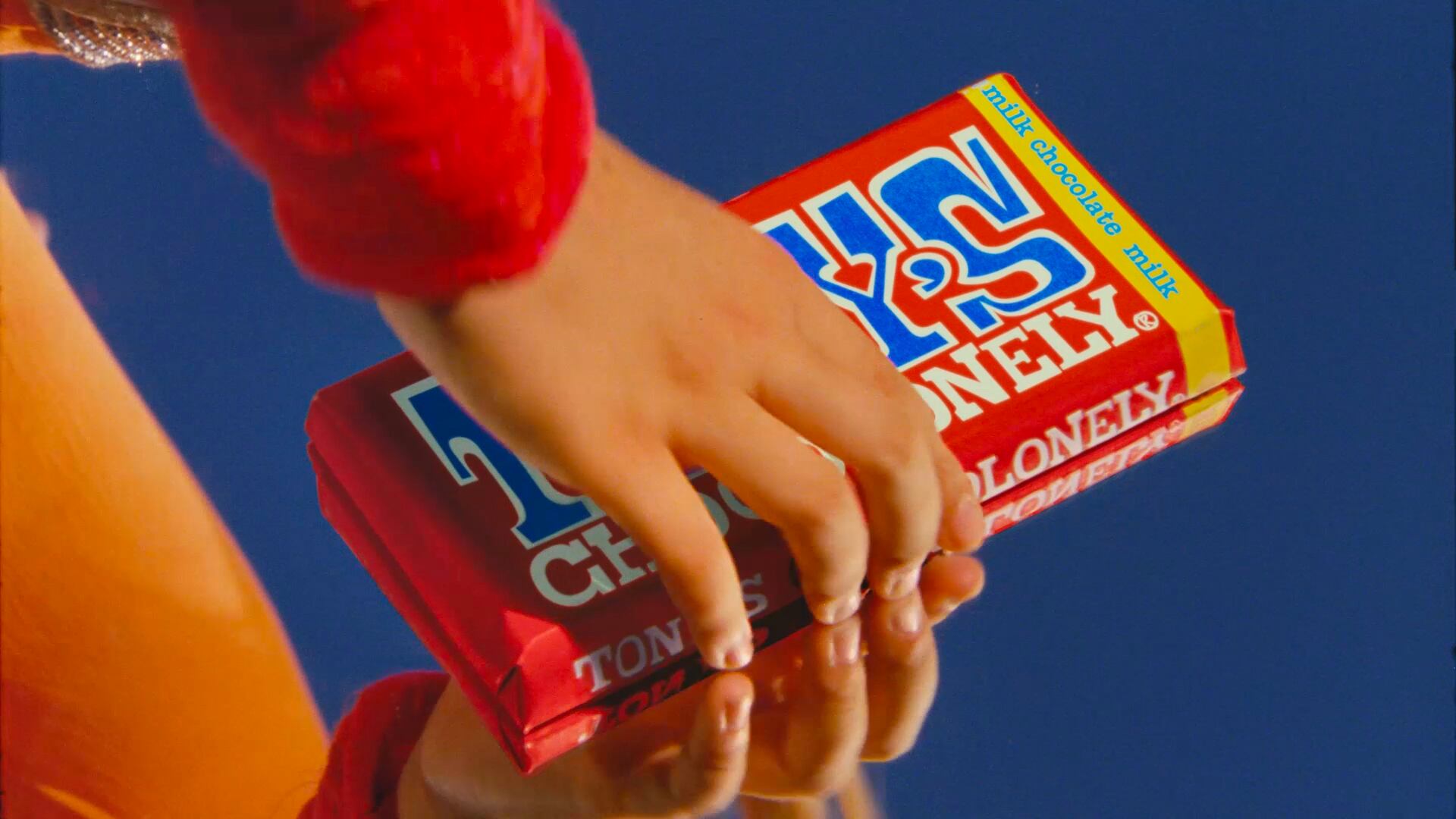New research by Ethical Consumer in the UK has claimed that high profile chocolates with recent love-themed marketing drives such as Ferreo Rocher, Guylian and Green & Blacks (owned by Mondelēz) have been found to be ‘simply not doing enough’ to end child labour (and the poverty that drives it) in the booming industry.
The independent, not-for-profit, multistakeholder co-operative founded in 1989 and based in Manchester said it condemns companies ‘turning a blind eye’ to addressing the extreme poverty of farmers that causes child labour.
But the research has drawn criticism from big players in the chocolate industry.
Ferrero Rocher response
Ferrero told ConfectioneryNews: “We have reached out to Ethical Consumer as we strongly believe that the traffic light system does not reflect the work we are doing to ensure our cocoa supply chains are fair, sustainable and transparent. Ferrero sources 100% sustainable cocoa which is verified by independently managed schemes such as Rainforest Alliance or Fairtrade, and our cocoa beans are 100% traceable to farms.
“We have strong sustainability programs that aim to improve the livelihoods of farmers and communities, protect children’s rights and safeguard the natural capital. We do not tolerate child labour and we are determined to prevent and eliminate this issue across our supply chains. Our certified dedicated farmer groups are audited by independent third parties and we monitor via the Child Labour Monitoring and Remediation Systems (CLMRS), a well-proven method developed by the International Cocoa Initiative to effectively tackle child labour.
“In fact more than 90% of these farmers have a Child Labour Monitoring & Remediation System in place and it will be scaled in coming years. Our cocoa sustainability programme covers all our brands, including Kinder and Thorntons.”
Josie Wexler, researcher at Ethical Consumer, is calling for industry-wide action on cocoa sourcing and the endemic poverty that underlies the child labour. "Shockingly, child labour in cocoa has increased by 14% in the last decade. Children are often engaged in hazardous use of machetes and toxic chemicals and carry excessive loads.”
Mars Wrigley response
A Mars Wrigley Spokesperson told this publication: “We firmly believe child labour and forced labour have no place in the future of sustainable cocoa. Our Cocoa for Generations Strategy, launched in 2018, commits to $1bn investment over 10 years with the ambition of contributing to transforming the cocoa supply chain so that global sustainable development goals are met, human rights are respected, the environment is protected, and cocoa farmers, their families and their communities have the opportunity to thrive.
“Yesterday we published our ‘Respecting Human Rights in the Cocoa Supply Chain’ report which provides our advances, insights and learnings against our Protecting Children Action plan, our approach to identifying, preventing and mitigating human rights risks in our extended cocoa supply chain. Our progress includes expanding coverage of child labour monitoring and remediation systems to nearly 70% (from 51% in 2019) of volumes sourced in Cote d'Ivoire and Ghana, across 58,000 households and championing the Living Income Differential. We’re also focused on empowering women by doubling the Village Savings and Loans Associations programme to reach more than 24,000 members in 2020, plus a $10M commitment to CARE to reach more than 60,000 by 2025 and we’ve invested $3.3M to support the Jacobs Foundation to promote quality education and early childhood development and nutrition.
“Child and forced labour remains a complex challenge for the whole industry and there is much more to do – we continue to welcome opportunities for more robust collaboration to put farmers and their families first and, to go further and faster, we are also calling for child labour and forced labour monitoring and appropriate governance legislation to help address the root causes of child labour in West Africa.”
The study’s authors claim they contacted 40 companies to establish if they had sufficient cocoa sourcing policies. They also looked into what actions they were taking to tackle poverty and child labour on the ground.
Researchers felt that the absence of a policy by some companies meant that abuses such as forced or child labour, that are usually the result of dire poverty, were more likely.
The following companies that Ethical Consumer alleges had insufficient policies in place include:
Ferrero; Mondelēz (Cadbury, Green & Blacks); Mars; Hotel Chocolat and Hershey’s, along with supermarkets: Tesco; Marks & Spencer; Waitrose; Sainsbury’s, ASDA and Morrisons.
Wexler said: “Companies with sufficient cocoa sourcing policies in place were given the ‘best’ score for Ethical Consumer’s Cocoa Sourcing rating. In some cases, brands dealt directly with the farmer, had traceable supply chain measures in place and were able to confirm they were 100% Fairtrade Foundation certified, which gives the farmers a premium over the market price.”
Bean-to-bar ethical chocolate MIA, short for Made In Africa, earned an 85% score (17/20) and a spot among the top three brands in Ethical Consumer’s study.
MIA response
MIA co-founder Brett Beach said: “From the start, the MIA brand promise has been to create amazing food that does good and this recognition is proof that the work we’ve done with supply partners in Africa is making a difference. We’re also pleased that Ethical Consumer has taken added-value in cocoa producing countries into account in their review that covers other important issues such as climate change, animal welfare, human rights and pollution. In our experience, this is one of the most comprehensive reviews of company ethics so it’s a great tool to measure progress towards our goals.”
Other brands named by Ethical Consumer with sufficient cocoa sourcing policies were: Cocoa Loco, Lindt, Traidcraft, iChoc, Vivani, Ritter Sport, Lidl, Divine, Tony’s Chocolonely, Fairafric, Vego, Beyond Good, Chocolate Madagascar, Pacari, Co-op, Moo Free, Willies, and Ombar.
"Governments have started making some efforts to tackle the low prices at the root of the issue, and companies need to be much more on board with that and helping to push it forwards," said Wexler.
"Fairtrade gives a premium, so the farmers get a bit more money. Other models that help include having the farmers more involved by partially owning the company (Divine) or making the finished chocolate locally can make a big difference but ultimately governments and companies must do more to eliminate poverty among those supplying the industry.”
- Apart from Mars and Ferrero, other companies in the report contacted by ConfectioneryNews were unavailable for comment.
- Read the report here.



